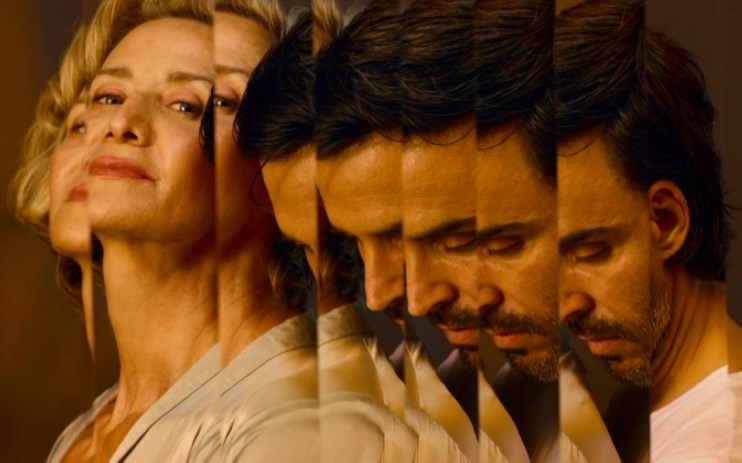Phaedra at the National Theatre: Yerma director returns with a strange hit

Those expecting a traditional retelling of Seneca’s Phaedra may think they’ve walked into the wrong theatre when the Lyttelton curtain rises. There isn’t a tunic or a doric column to be seen in director Simon Stone’s reimagining – instead you’re met by a gleaming glass cube housing an extremely swanky modern apartment.
You may still think you’re in the wrong theatre when the play gets going, with Stone cherry-picking themes rather than directly adapting the text. His play revolves not around Phaedra, wife to the King of Athens, and her forbidden lust for her step son, but around Helen, a slick politician and member of the shadow cabinet.
A parent to precocious children Isolde and Declan, and an (admittedly fairly crappy) wife to Hugo, everything is ticking along nicely for Helen until Sofiane, the French-Moroccan son of her dead former lover, comes knocking on her glass cube, reigniting her long-dormant libido.
Sofiane is everything the family is not, empathic and open rather than guarded and arch, speaking in grand declarations that are at once profound and ridiculous. “This guy’s so fucking deep,” says the teenaged Declan, only half joking.
Stone, best known for his lauded 2016 take on Lorca’s Yerma, is not afraid to throw theatrical devices against the wall to see what sticks. There are audio recordings from a father to his son that play between acts, a cold opening filled with cross-talk that immediately wrong-foots the audience, and a final act so shocking and remote it feels like it’s from a different play altogether.
It can feel a little muddy at times, the gears catching in the frequent segues from comedy to melodrama, but the writing is consistently sharp and the performances uniformly excellent.
At times it tips into full-on farce, with a scene set in a restaurant, in which various cats are let out of various bags, being particularly well observed.
But at the play’s heart is the doomed love affair, and there a real, desperate chemistry between Janet McTeer’s (Ozark) Helen and Assaad Bouab’s (Bad Sisters) Sofiane. The two are deeply flawed, tragic in the classic sense, their downfall set in motion from the moment they meet.
The cast are forever trapped in their hermetically sealed little world, a kind of limpid terrarium in which Freudian desire is allowed to flower, with the audience playing the role of creepy voyeurs peering in through the windows.
It looks incredible, Chloe Lamford’s set not dissimilar to that of The Lehman Trilogy (a National Theatre production that’s just transferred to the West End), and when the scene changes from the pristine apartment to a Theresa May-style field of wheat, and later to a snowy vista, it’s so impressive it elicits a sharp intake of breath.
While not as straightforwardly brilliant as Yerma, Phaedra is brimming with ideas, and even the ones that don’t quite work are glorious failures. And when it does work, it’s electric.
